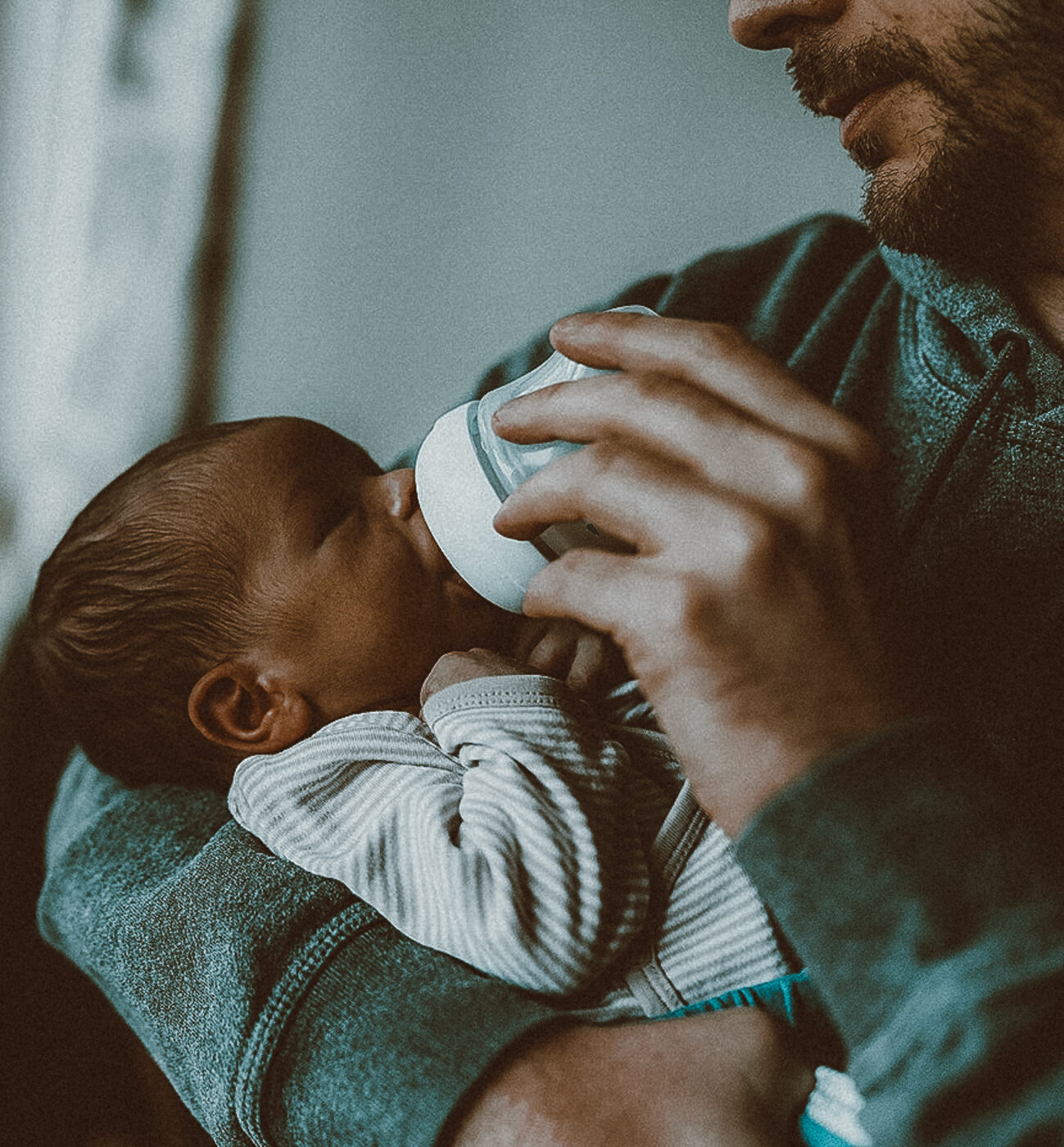Going Out to Dinner with Kids While on a Sleep Schedule
Night Feeds & Your Newborn
Night feeds are completely normal and necessary for newborn babies and young infants. Babies will drop in weight shortly after they are born and it’s crucial that they get enough calories during this time – even in the overnight hours. Newborns (especially in the first 4 weeks of life) will often want to eat every 1-2 hours, and lactation experts recommend offering “cue based” feedings or “on demand” feedings instead of going by the clock. This will help ensure calorie intake and support milk supply for nursing moms.
In addition, most pediatricians do not want more than a 4 hour sleep stretch until baby is at least 2 weeks old and/or back to their birth weight, which often happens around day 7-14. As a result, you will need to wake a newborn baby to nurse or feed every three hours (or sooner) both night and day. Keep in mind, most babies will wake up on their own for night feeds, but if it has been 3 or 4 hours since a feeding and baby has not woken up, then get baby skin to skin and likely he/she will wake up and want to nurse or have a bottle.
Average Number of Newborn Feeds/Day
It can vary how many times a baby should/needs to nurse/feed at any age, even after baby reaches 12-15 lbs. A mom that has a 15 lb baby and a huge milk supply/huge storage capacity in her breasts may do great with nursing just 4-5 times a day. On the other hand, a mom with less milk/less storage capacity in her breasts, may need 10 nursing sessions a day for that baby to get enough milk for adequate development. Following cue-based feedings will allow mom’s milk supply to stay adequate and ensure baby gets enough during the day.

When & How to Wean Night Feeds
When your pediatrician gives you the green light, you can stop waking your baby and let them wake you instead. This is usually after the baby has gained back enough weight to reach or surpass their birth weight. You can expect one or two night feeds per night from six to twelve weeks, and one night feed until reaching 12-15 pounds. Some babies grow out of night feeds on their own, while others need a little bit of help. Here are some ways to help your newborn wean from night feeds:
1. Newborn Routine: Eat, Wake, Sleep
During the day, feed your baby when she wakes up, instead of right before a nap. Feed her first thing in the morning, and then give her some time to play before she takes a nap. Then, when she wakes, feed again. Avoiding the feed-to-sleep routine will help ensure that milk does not become a sleep crutch. If he/she associates milk with sleep, you are more likely to see night wakings.
2. Milk First in Bedtime Routine
You probably have a bedtime routine that includes a bath, a story, and a final bottle or nursing session. It’s tempting to save the feed for last to “fill up the tank” for the night. Instead try giving the bottle at the start of the bedtime routine. This can help avoid milk as a sleep association. It can also reduce tummy issues that can disturb your little one’s slumber.
3. Newborn Sleep Noises or Hunger?
Night wakings after a baby reaches 12-15 pounds are usually not hunger-related. Instead, they are usually caused by a sleep issue. Babies are noisy sleepers and sometimes they stir a bit before falling back to sleep. It can be hard to resist the urge to go in at the first noise you hear, but you might be surprised at how well they do if you wait a few minutes. If crying escalates or continues, you know it’s time to check in with baby.
If the night wakings are happening nightly, you can be fairly sure that hunger is not the problem. A hungry baby will gulp down lots of milk and go back to their crib while they are still awake. A baby who nurses just a little bit and then becomes drowsy needs to develop independent sleep skills.
Dream Feeds
It’s tempting to sneak in a night feed around 10 p.m. After all, you haven’t gone to bed yet and it might seem like a genius way to help your baby make it through to morning, but it rarely works out that way. The first part of the night is baby’s deepest period of sleep, and interfering with it can actually cause more night wakings. Instead, it’s best to let baby sleep undisturbed through this time.
It can help to pump once around mom’s bedtime (10/11pm) if baby is sleeping a 8-12 hour stretch, to help keep up mom’s milk supply, especially if she wants to make it to a year of breastfeeding. Pumping at this time will help keep up milk supply without interrupting baby’s sleep.
All babies need night feeds in the early weeks and even months. But this period is meant to be something that your baby grows out of. There absolutely is a light at the end of the tunnel. Some babies will make it there on their own, and others may need a little help, and that’s fine too. If you’re ready to end night feeds and your baby hasn’t gotten the memo, find a sleep training method that’s right for you. If you want to learn more about Sleep Wise’s sleep or feeding support, we’d love to tell you more about how we can help.


